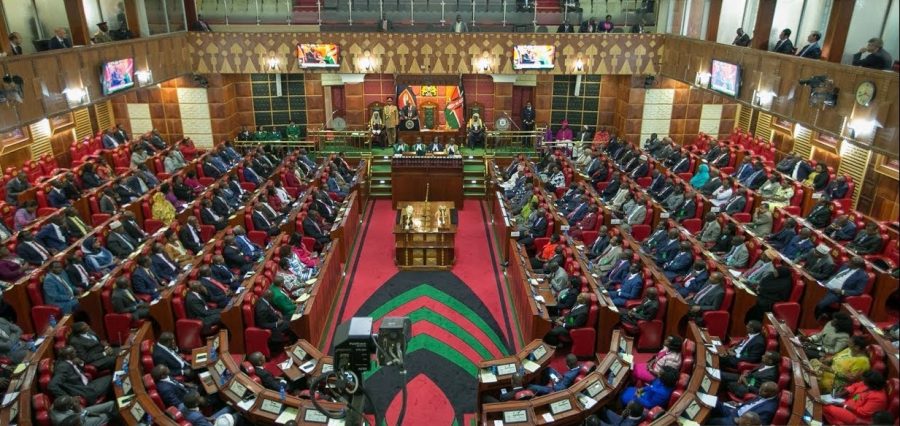advertisement
Sector stakeholders respond to re-emergence of Kenya’s ICT Practitioners Bill
ICT sector stakeholders have responded to the re-emergence of Kenya’s controversial ICT Practitioners Bill, earlier reported by CIO East Africa,…

ICT sector stakeholders have responded to the re-emergence of Kenya’s controversial ICT Practitioners Bill, earlier reported by CIO East Africa, taking to the Kenya ICT Action Network (KICTANet- a multi-stakeholder platform for people and institutions interested and involved in ICT policy and regulation) to air their thoughts.
The new ICT Practitioners Bill is sponsored by Hon. Godfrey Osotsi, Nominated Member of the National Assembly. Osotsi proposed some new changes to the bill, changes that have gotten the ICT sector stakeholders to take notice and discuss the way forward.
“I think the sole objective of the bill, is to define an ‘ICT practitioner’.” kictanet member, Collins Areba wrote about the intentions of the proposed bill.
According to Osotsi, apart from people who hold degrees in computer science, or related fields, the bill will now take into consideration individuals from other fields which are closely related to ICT, to be considered an “ICT Practitioner”.
advertisement
These realated fields include: engineering, physics, mathematics, BBIT and any degree or diploma holder with a certain amount of experience in the ICT industry. The bill will also provide room for innovators, without degrees or diplomas, to continue churning out great ideas that shall be subject to approval by the Council of the Institute.
kanini mutemi, another Kictanet member, wondered whether there was such a thing as an ‘ICT Practitioner’, posting: “I say this in jest…perhaps what’s necessary is ‘How the Internet works’ primer. That would very quickly demystify the idea that there are certain people called ‘ICT Practitioners’.”
Learning from the past
Thomas Kaberi, via kictanet, wrote:
advertisement
“This is a very contentious issue with multiple and divergent interests. But let me start with congratulating you all for showing up to do this again, it clearly wasn’t going to be a one-time stand. On top of just fighting, this time we must be the ones to figure it out as well,”
He went on to list key lessons the ICT sector could borrow from the previous lobbying efforts in the first round:
- Find out the political reasons behind the bill – there is always a few and they are the only ones that matter.
- Work with the mover and chairs very closely – but don’t forget the researchers, committee members and support staff, major influences oftenly ignored to the peril of many.
- Lobby both one on one and committee -The members are smart human beings with personal views and positions that may not surface in group hearings for political and other reasons. The one on one’s give a view into the undercurrents and nuances in the committee proceedings preparing us not to react but respond effectively.
- Have a unified agenda and scenarios for both the fundamentals and specifics -generalities and differences only serve to make the point that we are disorganised and don’t know what we want.
- Give specific line by-line recommendations – It easier to negotiate specifics
- Educate the committee members about implications of each clause – don’t assume they know and or connect with your views and context.
- Plan for both the best and worst outcomes – Frustration is a key strategy in the making of sausages that law making is.
- That even within the sector we will detractors, armchair critics and lone ranger self-seekers – not everyone is saying what they mean and not few things are what they seem to be.
- Focus on what people really need beyond what they seem to seek – be open to giving more than you expect to give and take much less than you bargain for.
- Whoever hangs on long enough will have the best chance to win – We’ve done it before and we can do it again and again if that’s what it takes.
“Let’s wait for the bill to be published then we can connect the dots to interrogate both motive and players. Before the final doc is on the floor and we are reading it line by line our speculation may isolate potential allies,” Kaberi added.
advertisement
“Some of the views from last time were, to get ahead of politicians and draft a law that is holistic and progressive. It’s too late for the former, but we can work with the good Hon. Osotsi to make the latter happen. I actually think he was very courteous to tell us about the bill before he brought it to the house. That’s a very good sign of an open minded and progressive legislator. And it’s a good point to start,” he continued.
Have your say on this issue, comment below.